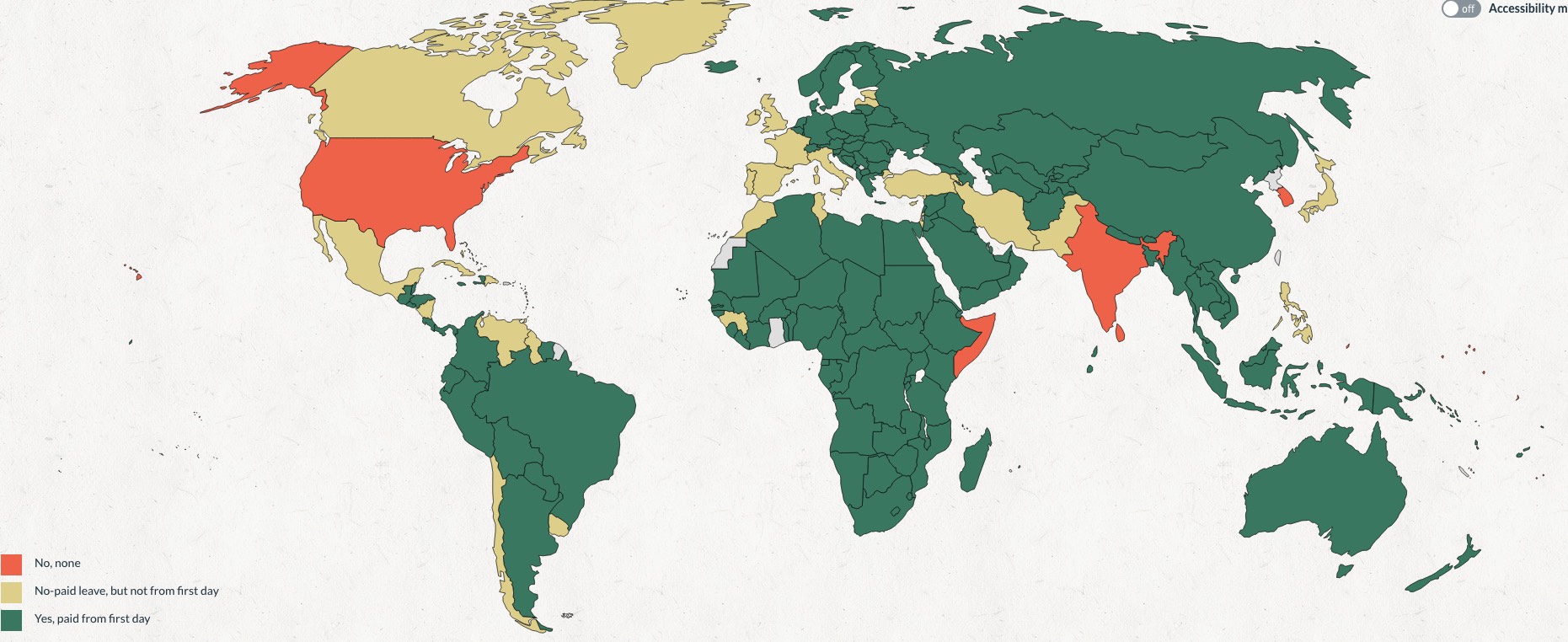U.S. Worst In The World At Providing Paid Leave For Caring
The US lags behind almost the entire world in providing national paid leave for caring to working people. And the U.S. is one of 7 countries that do not have a national program for paid maternity leave.

Are workers entitled to paid sick leave from the first day of illness? WORLD Policy Center chart.
Unless covered by a good union contract, workers in the US do not have the benefit of paid leave for new parenthood, for sickness, or for caring for family ill members. Federal law does not mandate paid sick leave. The federal Family and Medical Leave Act (FMLA), passed in 1993, provides up to 12 weeks of unpaid leave to employees of companies with 50 or more employees. Absence of benefits amplifies stressful personal and family situations. A few states and some private employers do provide varying amounts of paid leave to their workers, according to the Kaiser Family Foundation.
Lack of paid maternity leave may hinder child development and also exacerbates home and workplace gender inequality, according to a research report by New America. The report states: "The wage gap noticeably widens when women have children, as policy, workplace practice, and traditional gender expectations of the male breadwinner and female caregiver lead to women being primarily responsible for housework and child care, even when working full time." The New America report adds that when nations have added paid paternity leave -- and fathers have taken it -- gender equality improves at home and at work.
Compared to Other Nations
The US is an outlier, to a shocking degree, on paid care for infants. According to comparisons by the WORLD Policy Center at the UCLA Fielding School of Public Health, only a few tiny countries, mostly in the South Pacific, do not offer paid leave to care for infants. Even low-income countries offer paid maternity leave. Most wealthy countries offer at least 14 weeks of paid leave and paid options to facilitate breast-feeding for 6 months. In this page entitled "Working Conditions Affecting Care" maps show how the US significantly trails peer countries in mandating paid leave to care for ill family members.
When it comes to paid personal sick leave, the US is also a signifcant outlier among nations, according to data presented by the WORLD Policy Center. A summary of a for-sale article in the magazine Health Affairs states: "Of the 94 percent of countries that provide permanent paid sick leave, none broadly restrict leave based on employer size, and 93 percent cover part-time workers without a minimum hours requirement," all limitations of the FMLA -- which does not even mandate or provide payment.